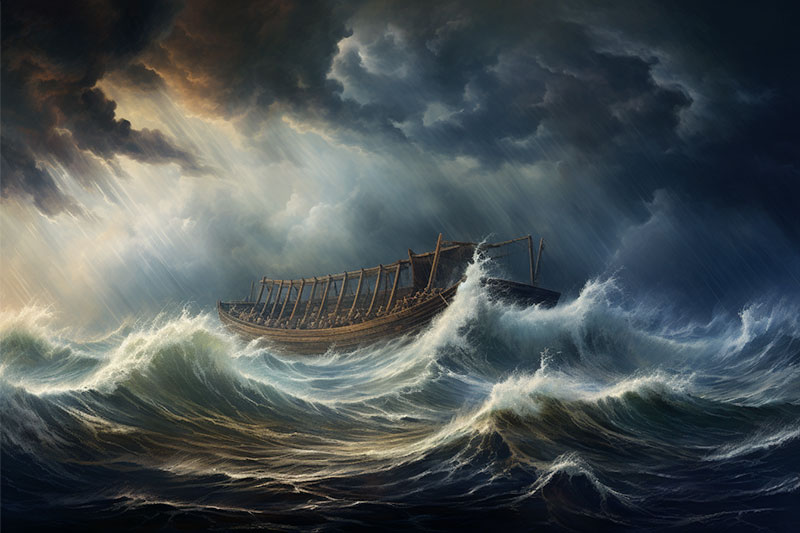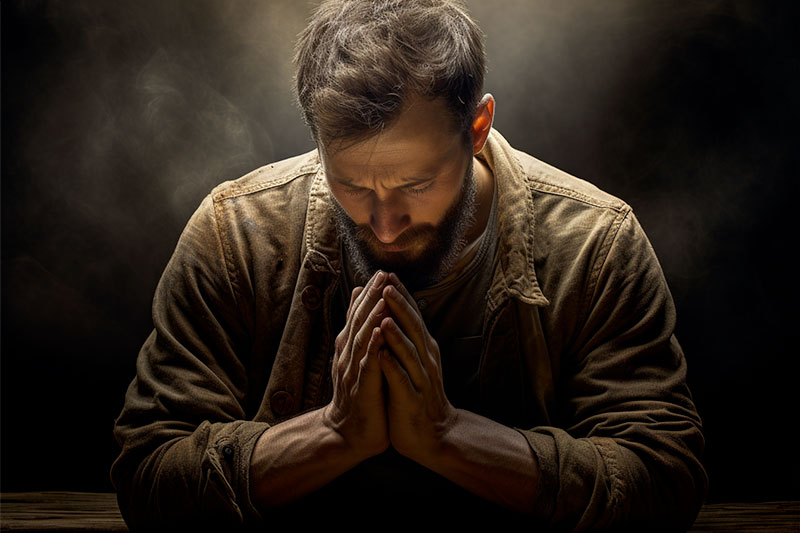Embark on a spiritual journey to comprehend God’s decision behind the Great Flood, as we delve into the depths of faith, judgment, and divine intervention
The story of the Great Flood is one of the most well-known tales from the Bible, a narrative that transcends Christianity and is echoed in numerous cultures’ mythologies. But the question that often arises is, why did God choose to flood the world? What led to such a divine judgment? To answer this, we must dive into the ancient text, trace God’s intentions, and connect them to our modern understanding of faith and morality.
The reason for God’s decision to flood the Earth can be found in Genesis 6:5-7. The verses state that the wickedness of humankind was great, their hearts filled with constant evil. God regretted creating humankind, finding grief in His heart. The divine course of action was to erase humankind, whom He created, from the face of the Earth – humans, animals, crawling things, and birds of the sky.
At first glance, this seems a harsh decision, an extermination. But it’s essential to consider the context of the narrative. The world was steeped in sin, corruption, and violence. The moral fabric of society was worn thin, causing a profound imbalance. God, in His divine righteousness, found this unacceptable.
Despite the impending judgment, there was a beacon of hope – Noah. Described as a righteous man, blameless among his contemporaries, Noah found favor in God’s eyes. So God decided to spare Noah and his family, instructing him to build an ark, thereby ensuring the continuity of life.
Now, one might wonder – why the method of a flood? Water holds profound symbolism in many cultures and religions, often associated with purification, rebirth, and transformation. By choosing a flood, God sought to cleanse the Earth of its wickedness and start anew.
However, it is crucial to remember that the story of the Great Flood isn’t just about divine wrath and judgment. It is equally about grace and mercy. After the flood, God made a covenant with Noah and all living creatures. God promised never again to destroy the Earth by a flood, setting a rainbow in the sky as a sign of this everlasting covenant.
Interpreting the Great Flood’s story, we find profound insights into God’s character and His relationship with humankind. Firstly, God is holy and just. He could not overlook the rampant wickedness consuming His creation. Secondly, God is merciful. In Noah, He preserved a righteous remnant, ensuring life’s continuity post the deluge. Lastly, God is faithful, setting a divine covenant promising never to resort to such means again, a covenant He has kept till this day.
So, the story of the Great Flood serves as a poignant reminder of the effects of our actions, the importance of righteousness, and the overwhelming grace of God. It imparts a timeless lesson on our responsibility as stewards of God’s creation and the sanctity of life.
In our modern world, where chaos and uncertainty often reign, the narrative of the Great Flood provides comfort and guidance. It encourages us to walk the path of righteousness, upholds the importance of faith and obedience, and testifies to God’s mercy and faithfulness.
To sum up, the Great Flood was a divine intervention borne out of necessity, a measure to restore balance in a world consumed by wickedness. Yet, it was also an act of divine grace, preserving a remnant to start anew. Above all, it is a testament to God’s character – righteous, merciful, and faithful.
The tale of the Great Flood isn’t a story of wrath, but a story of hope, a reminder of God’s covenant, and a call for righteousness in a world that often strays into chaos.




